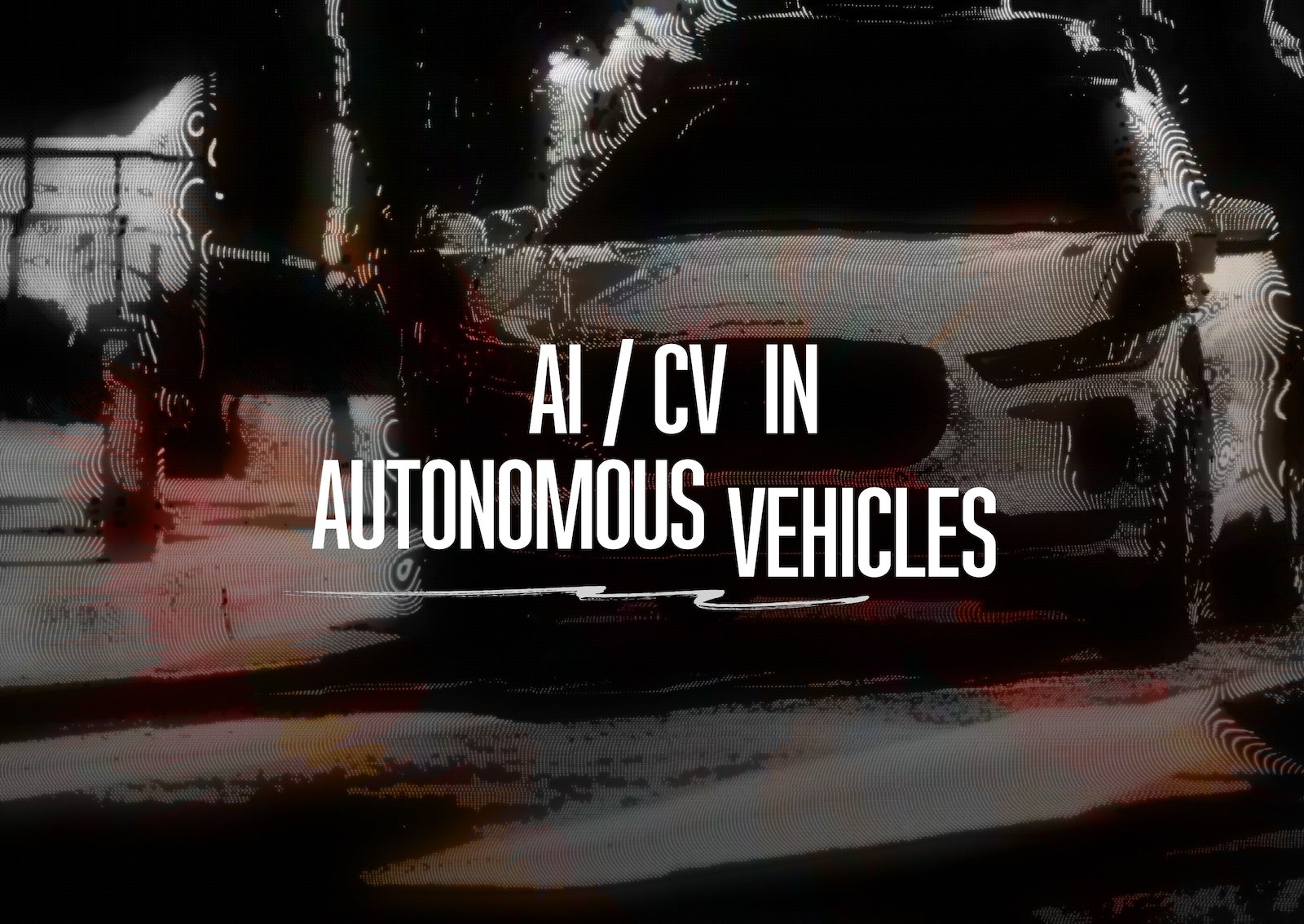
Bounding boxes are not enough anymore (for a majority of tasks)

AI in Architecture

AI in driverless cars


Embed street-to-shop technology to increase customer engagement and help your customers find exactly what they're looking for. Who doesn’t want to have jeans like Beyonce? With our help, your users can simply upload photos of the items they want and instantly find similar styles in stores' collections.

Turn your digital screens into smart mirrors that provide a real-time try-on experience. Eliminate fitting room bottlenecks, suggest complementary pieces, and present product information to your customers. Allow them to virtually mix and match outfits, reducing indecision and increasing sales.

Leverage AI fashion software development services to optimize your packaging processes for both business efficiency and customer satisfaction. By predicting the ideal packaging for different products, AI helps reduce waste, lower shipping costs, and increase customer satisfaction.
Create a smoother and more satisfying shopping experience for your customers with AI-backed body measurements.
Algorithms precisely estimate a person's body measurements and recommend the best-fitting clothing based on the customer's body type. This, in turn, helps to ensure a better fit and minimize return rates.
Uncover the power of AI fashion software with fine-grained analytics and extraction of meaningful insights from the store’s video footage. Pose and gaze estimation, as well as object tracking algorithms, monitor customers’ movements, identify popular areas, underutilized sections, and peak hours, and allow you to adjust your marketing, layout, and production decisions accordingly.
Say goodbye to counterfeit products, as ML-powered fashion software can quickly and accurately verify the authenticity of fashion items at various points in the supply chain. This not only protects your brand from reputational damage but also ensures that consumers receive and return original products.
Employ the full power of generative AI. With AI technology, your customers will be able to try on a wide range of items from the comfort of their own homes — and their virtual clothing image will be indistinguishable from the photos.
AI-powered algorithms allow collecting fine-grained analytics to build an extensive customer portrait in a completely privacy-preserving and anonymized way. This will help you tailor your sales and literally make them personalized — and earn more.
AI systems use predictive analytics to help you make informed decisions about which items to resale. Plus, with embedded AI, you can minimize production waste, increase the use of sustainable materials, and make it easier to identify and sort garments for resale or upcycling.
AI analyzes customer data, purchase history, and personal preferences to help you provide your customers with relevant offers to complete the look according to their individual style. Sell more via Cross-selling and get happier customers.
Improve team efficiency with AI fashion software. Computer vision technologies can help you understand how your advisors communicate with and help customers — right down to the detailed execution of a service checklist.
AI will track how items are placed on the shelves and quickly adjust the product layout. Place the most profitable items on the top spots, and avoid empty shelves.

Embed street-to-shop technology to increase customer engagement and help your customers find exactly what they're looking for. Who doesn’t want to have jeans like Beyonce? With our technology, users can simply upload photos of the items they want and instantly find similar styles in stores' collections.
Create a smoother and more satisfying shopping experience for your customers with AI-backed body measurements. Our algorithm precisely estimates a person's body measurements and recommends the best-fitting clothing based on the customer's body type. This, in turn, helps to ensure a better fit and minimize return rates.
Employ the full power of generative AI. With AI technology, your customers will be able to try on a wide range of items from the comfort of their own homes — and their virtual clothing image will be indistinguishable from the photos.
AI analyzes customer data, purchase history, and personal preferencesto help you provide your customers with relevant offers to complete the look according to their individual style.Sell more via Cross-selling and get happier custmers.

Turn your digital screens into smart mirrors that provide a real-time try-on experience. Eliminate fitting room bottlenecks, suggest complementary pieces, and present product information to your customers. Allow them to virtually mix and match outfits, reducing indecision and increasing sales.
Uncover the power of AI fashion software with fine-grained analytics and extraction of meaningful insights from the store’s video footage. Pose and gaze estimation, as well as object tracking algorithms, monitor customers’ movements, identify popular areas, underutilized sections, and peak hours, and allow you to adjust your marketing, layout, and production decisions accordingly.
AI-powered algorithms allow collecting fine-grained analytics to build an extensive customer portrait in a completely privacy-preserving and anonymized way. This will help you tailor your sales and literally make them personalized — and earn more.
Improve team efficiency with AI fashion software. Computer vision technologies can help you understand how your advisors communicate with and help customers — right down to the detailed execution of a service checklist.
AI will track how items are placed on the shelves and quickly adjust the product layout. Place the most profitable items on the top spots, and avoid empty shelves.

Leverage our AI fashion software development services to optimize your packaging processes for both business efficiency and customer satisfaction. By predicting the ideal packaging for different products, AI helps reduce waste, lower shipping costs, and increase customer satisfaction.
Say goodbye to counterfeit products, as ML-powered fashion software can quickly and accurately verify the authenticity of fashion items at various points in the supply chain. This not only protects your brand from reputational damage but also ensures that consumers receive and return original products.
AI systems use predictive analytics to help you make informed decisions about which items to resale. Plus, with embedded AI, you can minimize production waste, increase the use of sustainable materials, and make it easier to identify and sort garments for resale or upcycling.














Fashion AI technology can be used for various purposes, including personalized recommendations, virtual try-ons, inventory management, and demand forecasting. By analyzing consumer data and market trends, AI helps fashion brands understand customer preferences and optimize their operations, leading to enhanced shopping experiences and increased efficiency.
Generative AI in the fashion industry is a great asset as it helps create new designs, patterns, and even entire collections. It can generate unique pieces that resonate with current trends, reducing the time from design to market. This technology also enables brands to offer hyper-personalized products catering to individual tastes and measurements.
AI fashion design software can predict fashion trends by analyzing vast amounts of data from social media, fashion blogs, and sales records. Machine learning algorithms identify patterns and emerging trends, allowing brands to anticipate consumer preferences and adjust their designs and inventory accordingly.
While AI can assist in generating designs and patterns, it is unlikely to replace fashion designers.
The creative process involves emotional intelligence, cultural understanding, and artistic vision that AI cannot fully replicate. Instead, AI serves as a tool to augment designers' capabilities, offering them new ways to innovate and express their creativity.
Many forward-thinking fashion brands are already incorporating AI into their strategies. Examples include Zara, which employs AI for inventory management and sales forecasting, H&M’s virtual try-ons, and Alibaba’s fashion AI models, which provide personalized mix-and-match recommendations in physical stores.
AI can optimize supply chain management by predicting demand, managing inventory levels, and streamlining logistics. It also helps in reducing waste with accurate trend forecasts. This leads to more efficient use of resources and lower risks of overstocks and understocks.
There are some challenges and pitfalls that businesses should consider before implementing AI in their fashion business processes:
> Data bias and fairness:
AI algorithms are only as good as the data they're trained on. Biased data can lead to unfair outcomes, like perpetuating size or style discrimination.
> Data quality:
AI systems require large amounts of high-quality data to train their algorithms effectively. In fashion, obtaining diverse, accurate, and up-to-date data can be challenging, especially for smaller brands or those without a strong digital presence.
> Resistance to change:
The fashion industry is known for its traditional practices. Introducing AI fashion apps can meet resistance from industry professionals who may view it as a threat to their expertise or the creative process.
> Keeping pace with rapid change:
Fashion is a fast-moving industry with trends that can change quickly. AI fashion design software needs to be constantly updated and refined to remain relevant and effective.



